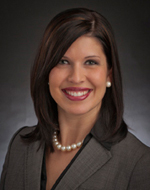 Rachelle Colombo; KMS Director of Government Affairs
Rachelle Colombo; KMS Director of Government Affairs
For the past several years, various non-physician practitioners across the country have pushed legislation to expand their scope of practice. Kansas APRNs have gone a step further, seeking to abolish all legal limitations on their scope of practice, and any requirements to collaborate with a supervising physician. APRNs wanting authority to practice independently as primary care providers argue that the collaborative practice agreement is meaningless and that supervision is both non-existent and unnecessary.
Under Kansas law, APRNs can practice quasi-independently and are not required to have direct supervision, but that structure was developed in conjunction with the requirement for a collaborative practice agreement, and the intent of such an agreement providing meaningful standards for supervision and delegation. In order to maintain a meaningful collaborative relationship, physicians must do more than sign a collaborative practice agreement. Kansas law (KSA 65-28,127) imposes clear requirements and limitations on physicians who collaborate with, supervise or delegate medical acts to non-physician personnel. Specifically, physicians must only direct and supervise acts and functions within their specialty which can be competently performed by the non-physician. Additionally, the delegated acts should be specified in a written agreement to provide clear boundaries and support for non-physicians. Entering into a collaborative practice agreement should be the beginning of a clearly defined working relationship.
These regulations were crafted to allow maximum efficiency of a health care team while still ensuring quality care and patient safety. But in the absence of clearly defined roles, adherence to delegate only those acts within a physician's specialty, without a relationship that fosters support, oversight and education, the collaborative practice agreement lacks the pillars that provide value for non-physicians and ensure safety for patients.
APRNs say that the law should not require collaborative practice if in reality the written agreements do not ensure meaningful physician collaboration and supervision. They resent being required to engage in a "meaningless transaction" that does not affect their practice. But eliminating a law because some fail to adhere to it or honor its intent does not improve or ensure quality care. If nurse practitioners aren't being provided with meaningful collaboration, direction or supervision, it does not mean they do not need it or that patients would not benefit from physician involvement in the care that is being provided.
The Kansas Medical Society is committed to keeping the practice of medicine in physicians' hands. No other health profession has the depth and breadth of training and experience that is equal to that of physicians. The practice of medicine is not only what you do, but what you direct, order or delegate to others. Physicians must take seriously their responsibility to appropriately collaborate, supervise, direct, and delegate to non-physicians if we desire to preserve the concept of a physician-led health care team.
















